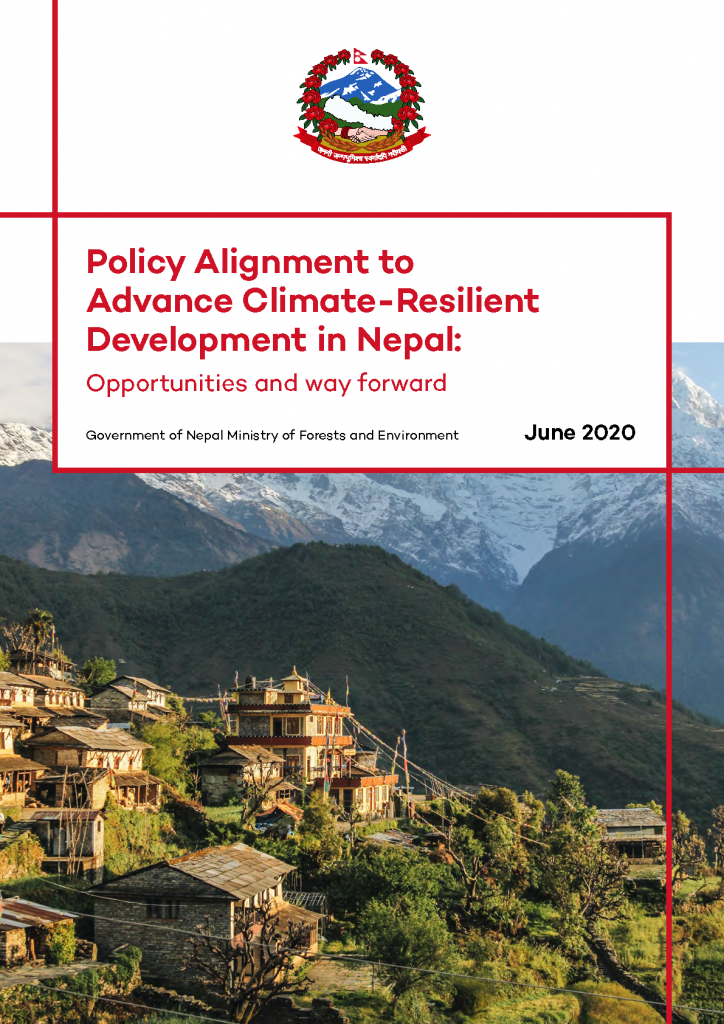
Policy Alignment to Advance Climate-Resilient Development in Nepal
Opportunities and way forward
Nepal’s political and economic situation has been in a state of transition over the last few years due to major political change. This has led to changes in the entire policy outlook of the country. After promulgation of the country’s new constitution in 2015, different policies to address the pressing needs of the country are being reviewed, including those focused on the impacts of climate change and achieving sustainable development.
Nepal’s Nationally Determined Contribution (NDC) is currently being reviewed and updated. It is expected that the process will consider the new governance structure of the country and address the many climate risks the country is exposed to. Furthermore, the National Adaptation Plan (NAP) formulation process has been relaunched to identify and address the medium- and long-term adaptation needs of the country.
While the policy processes are rolled out, it is imperative to explore, build and enhance understanding of how they can be strategically aligned to increase the coherence, efficiency and effectiveness of climate action in Nepal.
This discussion paper thus aims to explore potential entry points for increased alignment of policy processes related to the 2030 Agenda for Sustainable Development, the Paris Agreement under the United Nations Framework Convention on Climate Change (UNFCCC) and the Sendai Framework for Disaster Risk Reduction (DRR). It assesses the existing and potential synergies among different policy processes in terms of their objectives and areas of focus, to guide policy-makers in advancing climate-resilient development in Nepal.
Related content:
- Nepal’s National Adaptation Plan (NAP) Process: Reflecting on lessons learned and the way forward
- Nepal Validates Discussion Paper on Policy Alignment to Advance Climate-Resilient Development at National Workshop
- Advancing Nepal’s NAP Process: Key stakeholders reflect on progress and the way forward
- How Nepal is Linking National and Sub-National Adaptation
Publisher: Government of Nepal